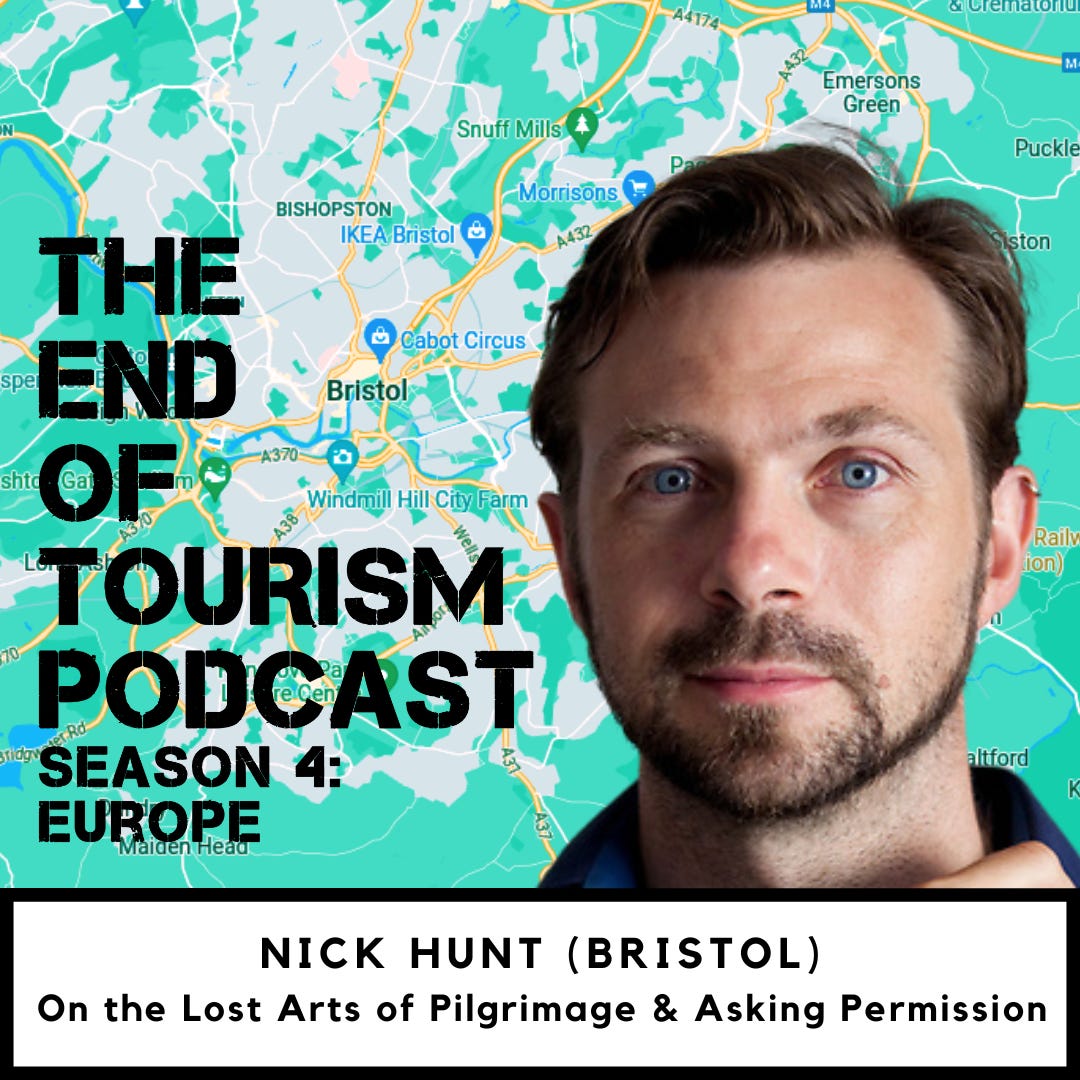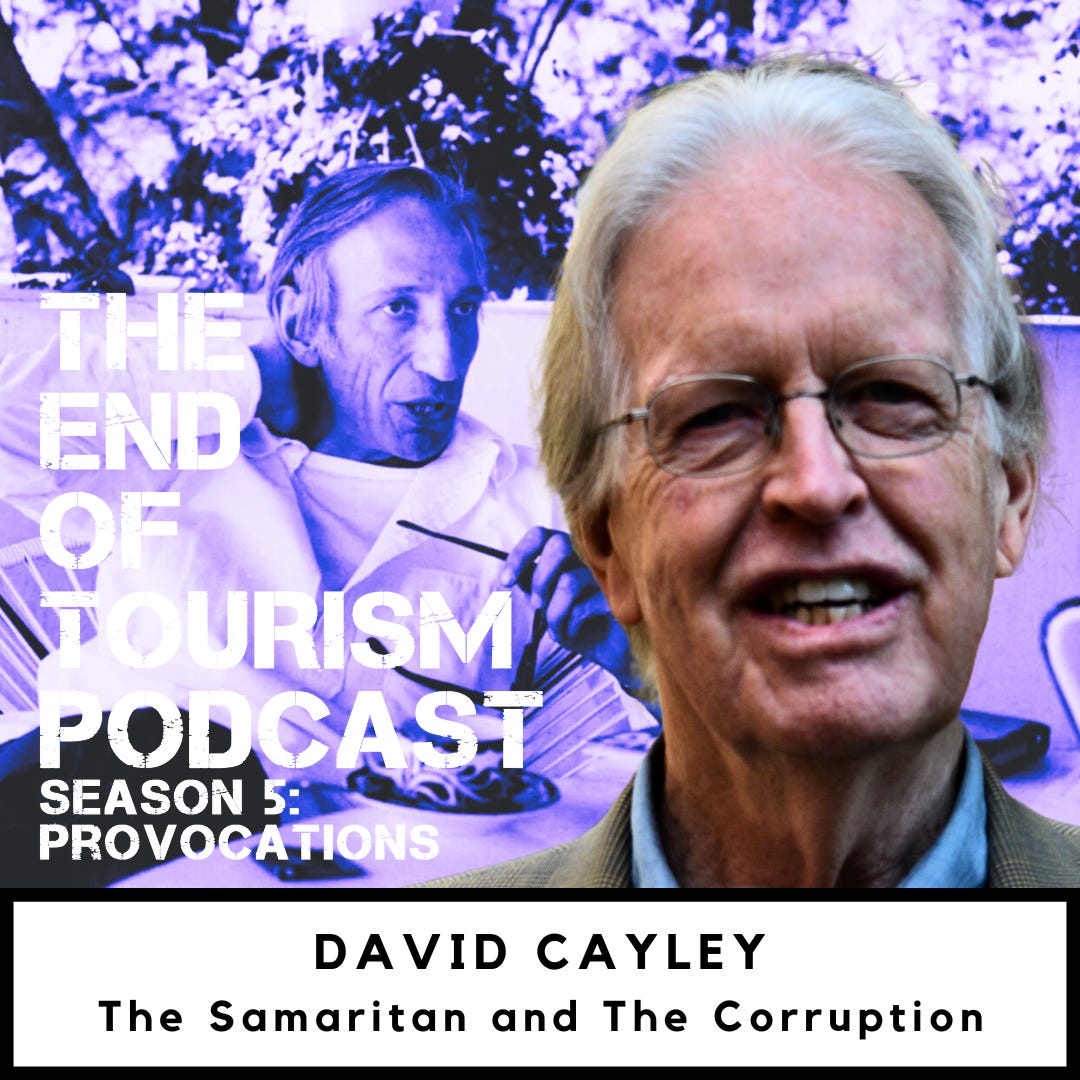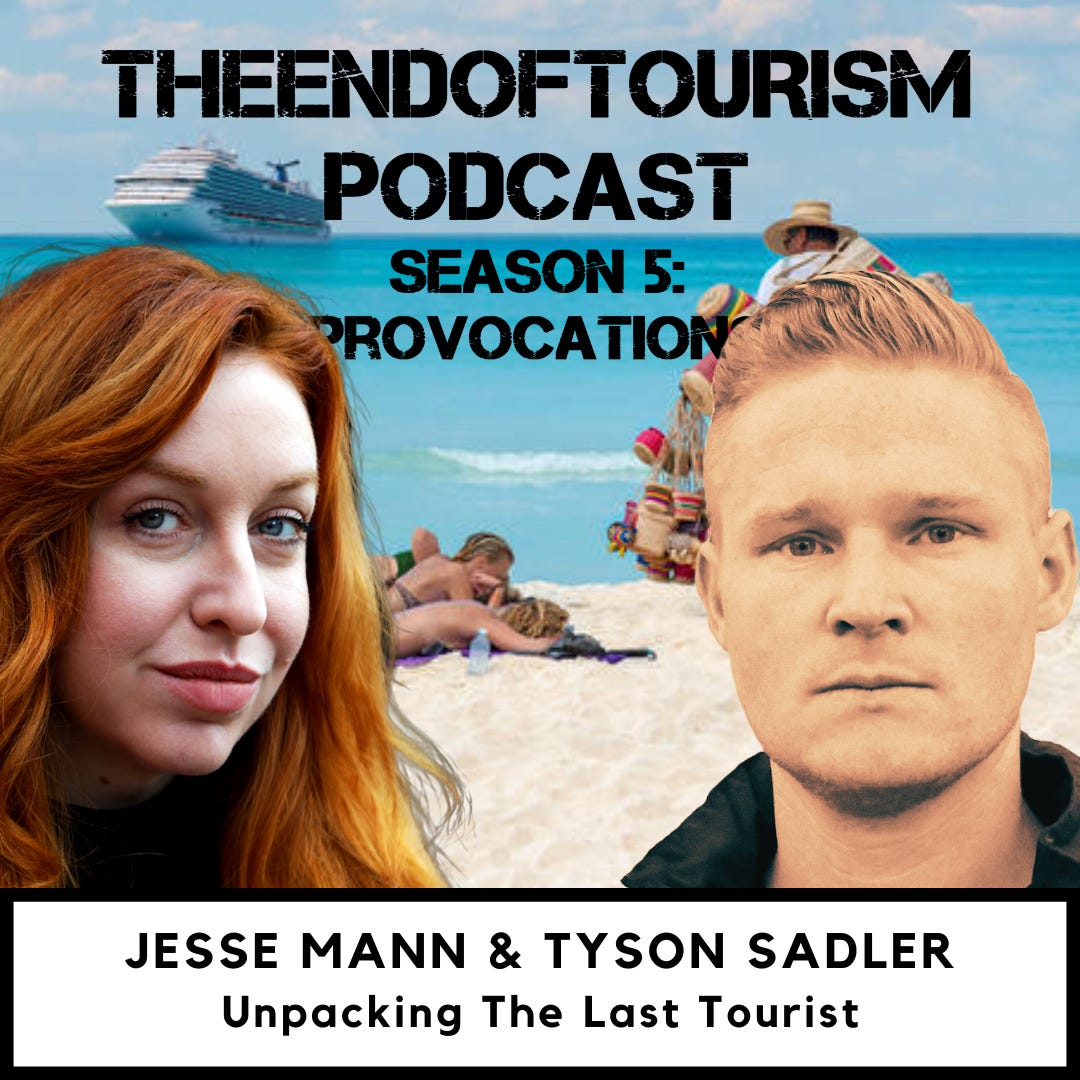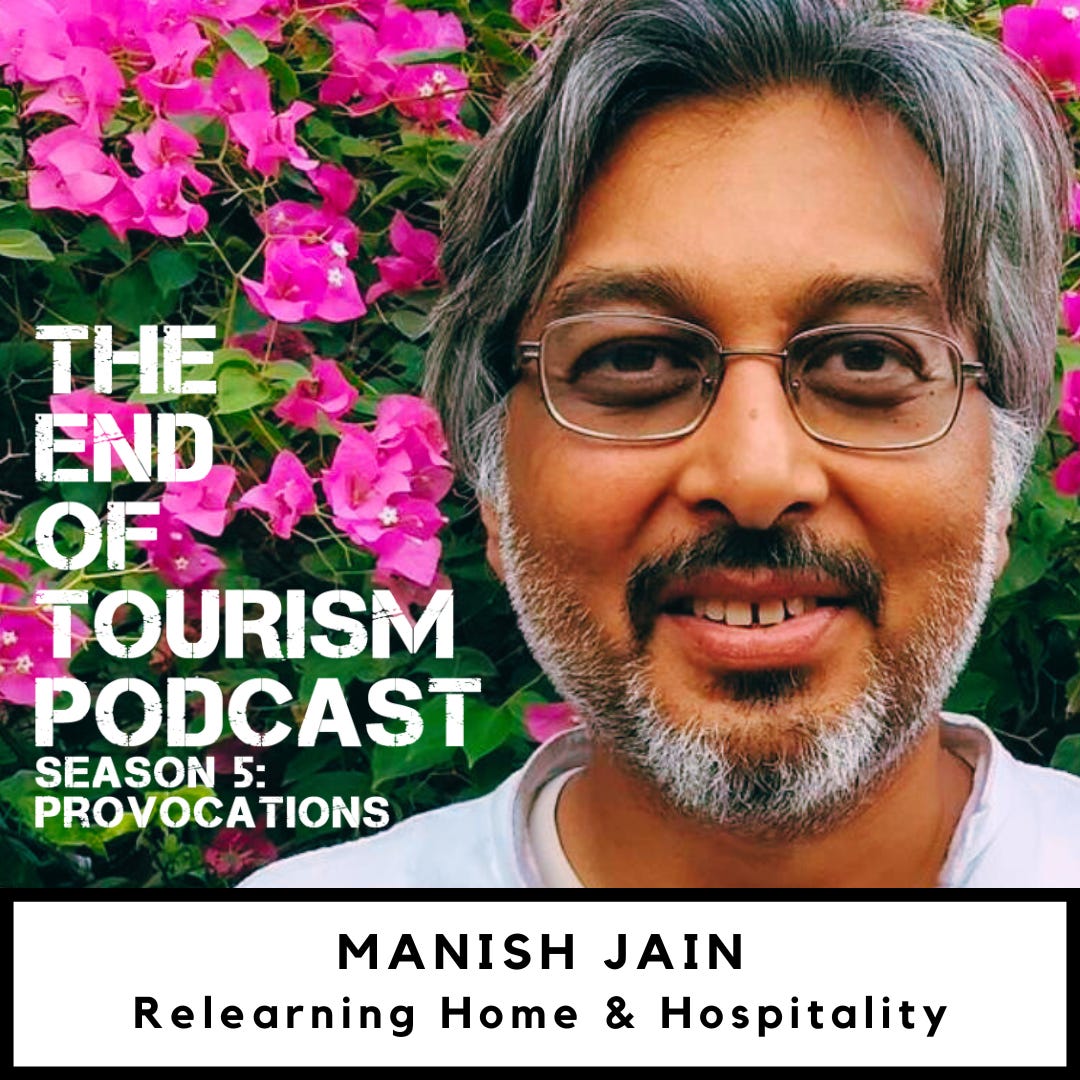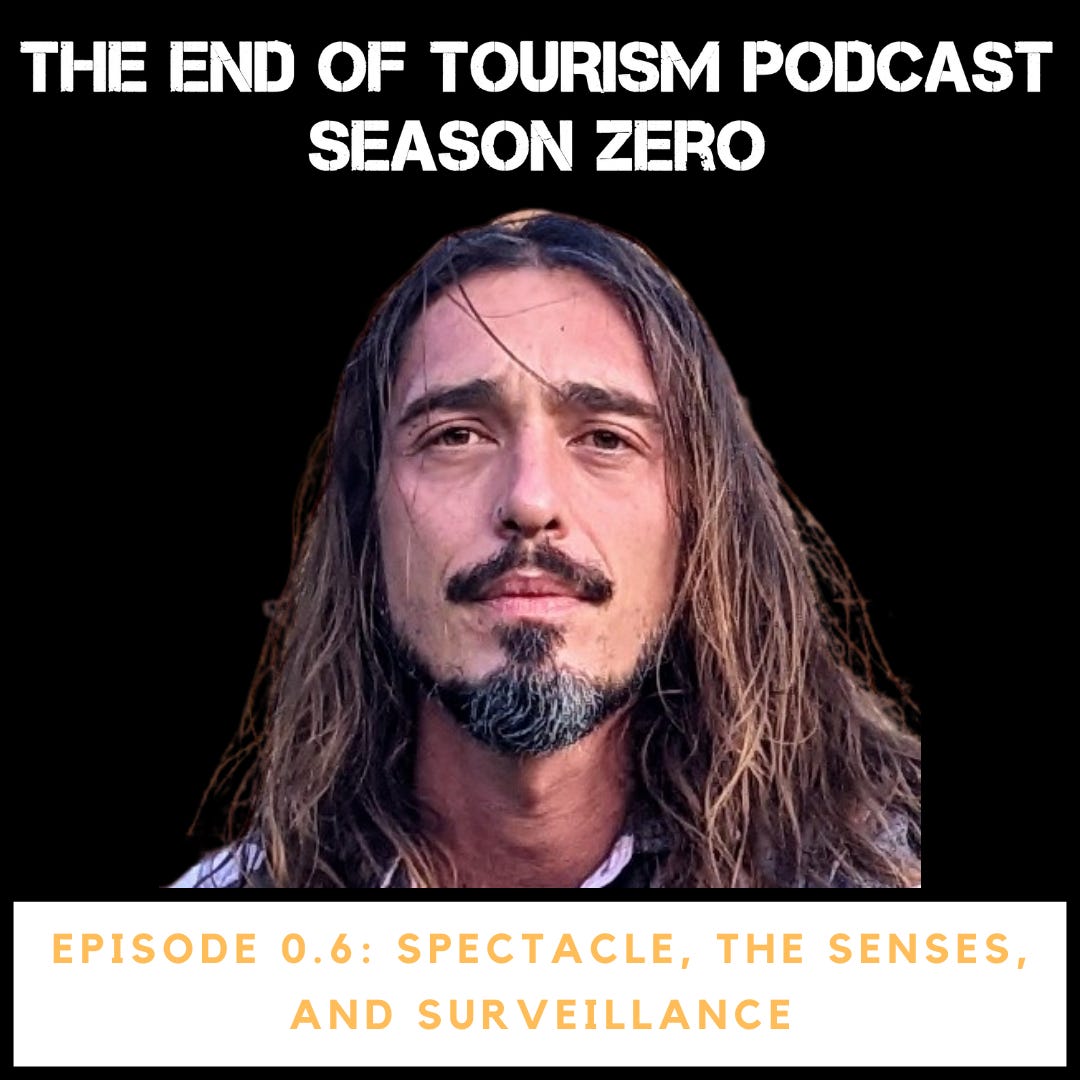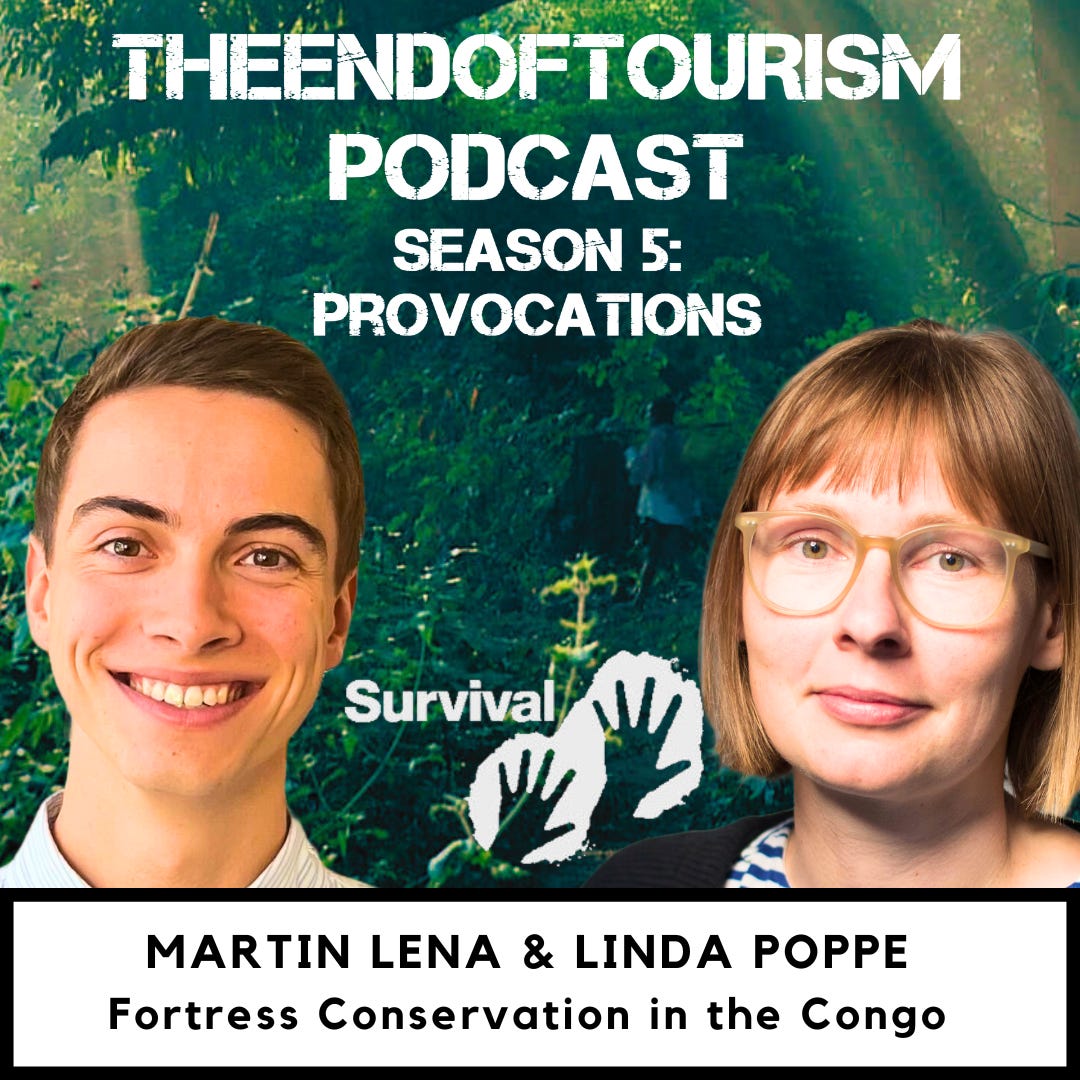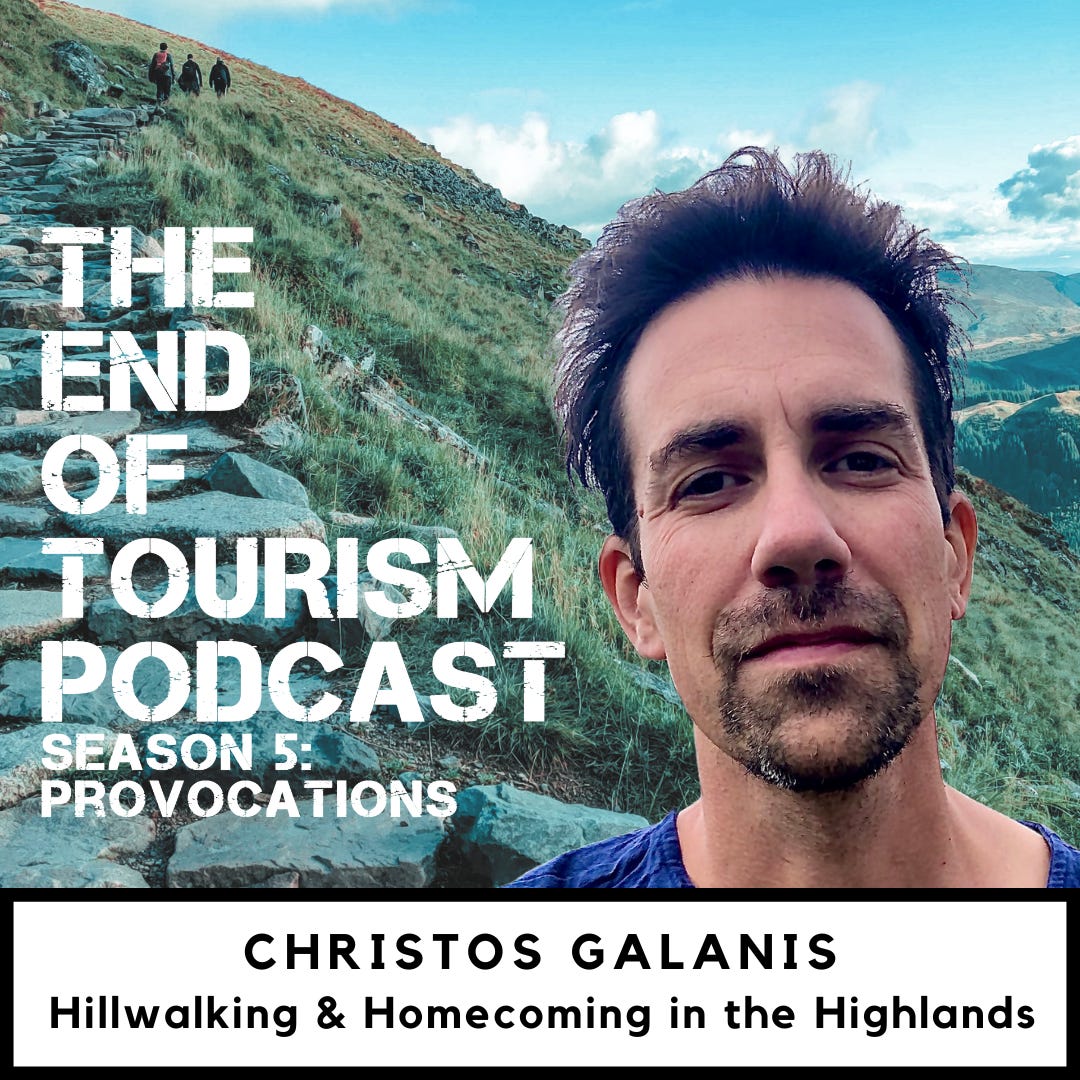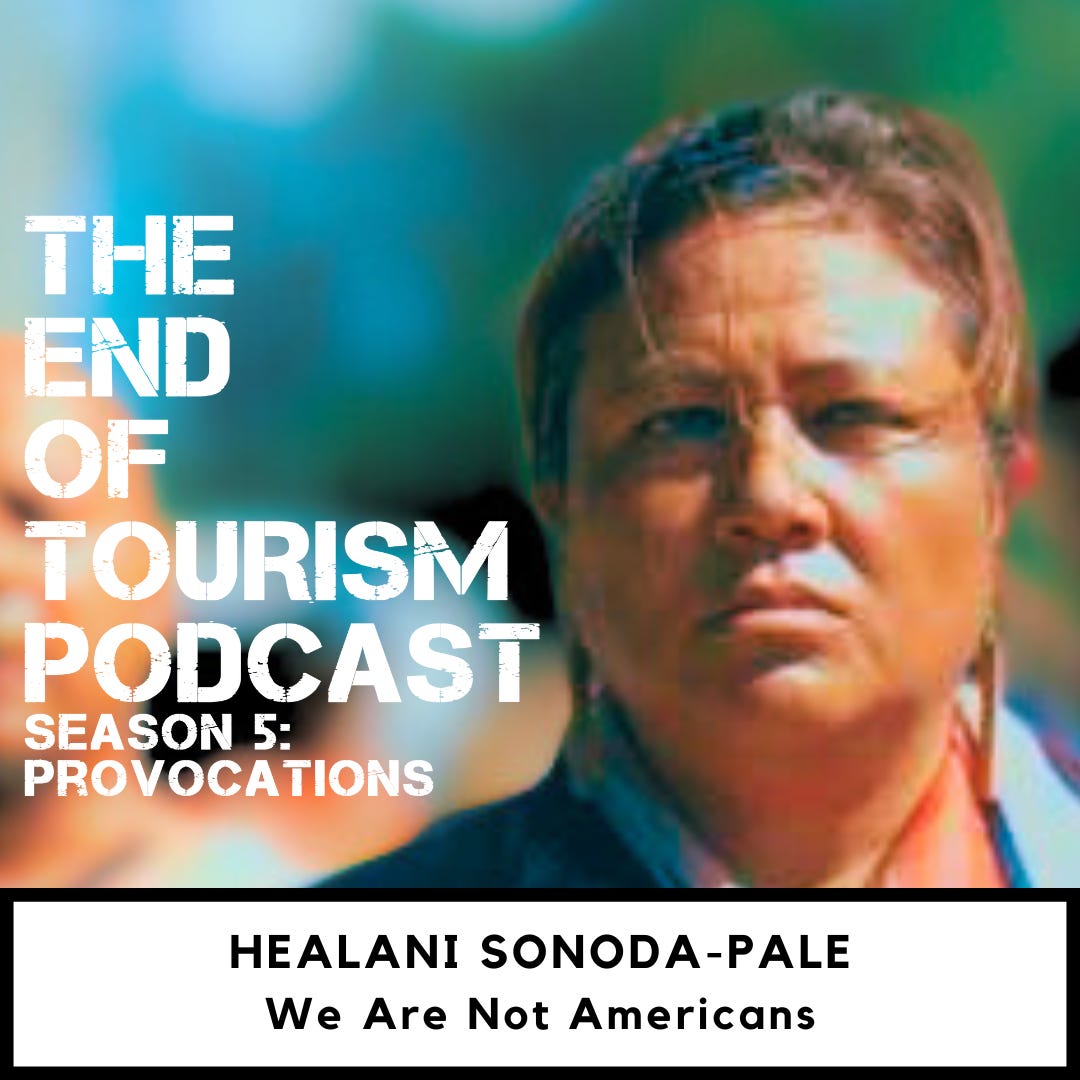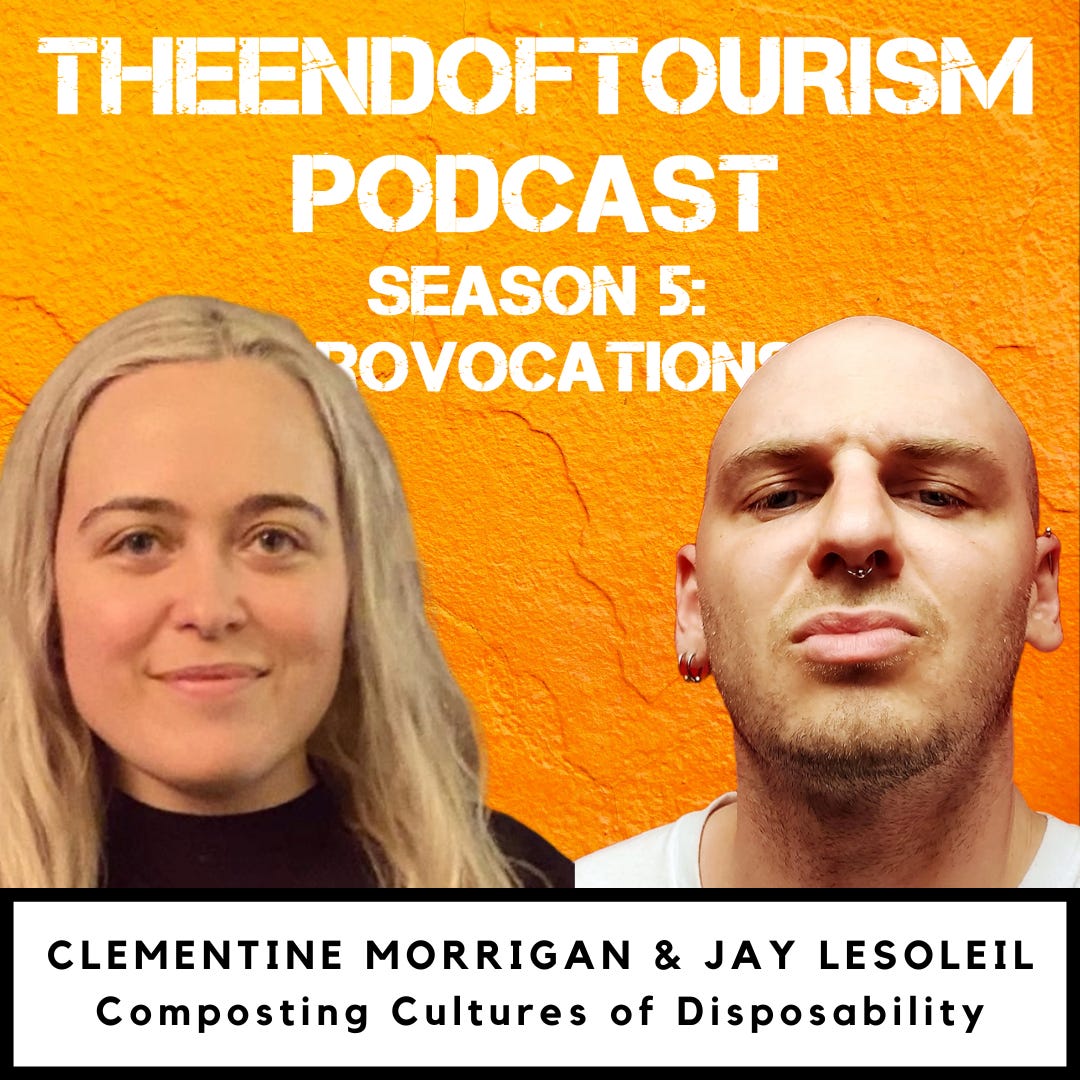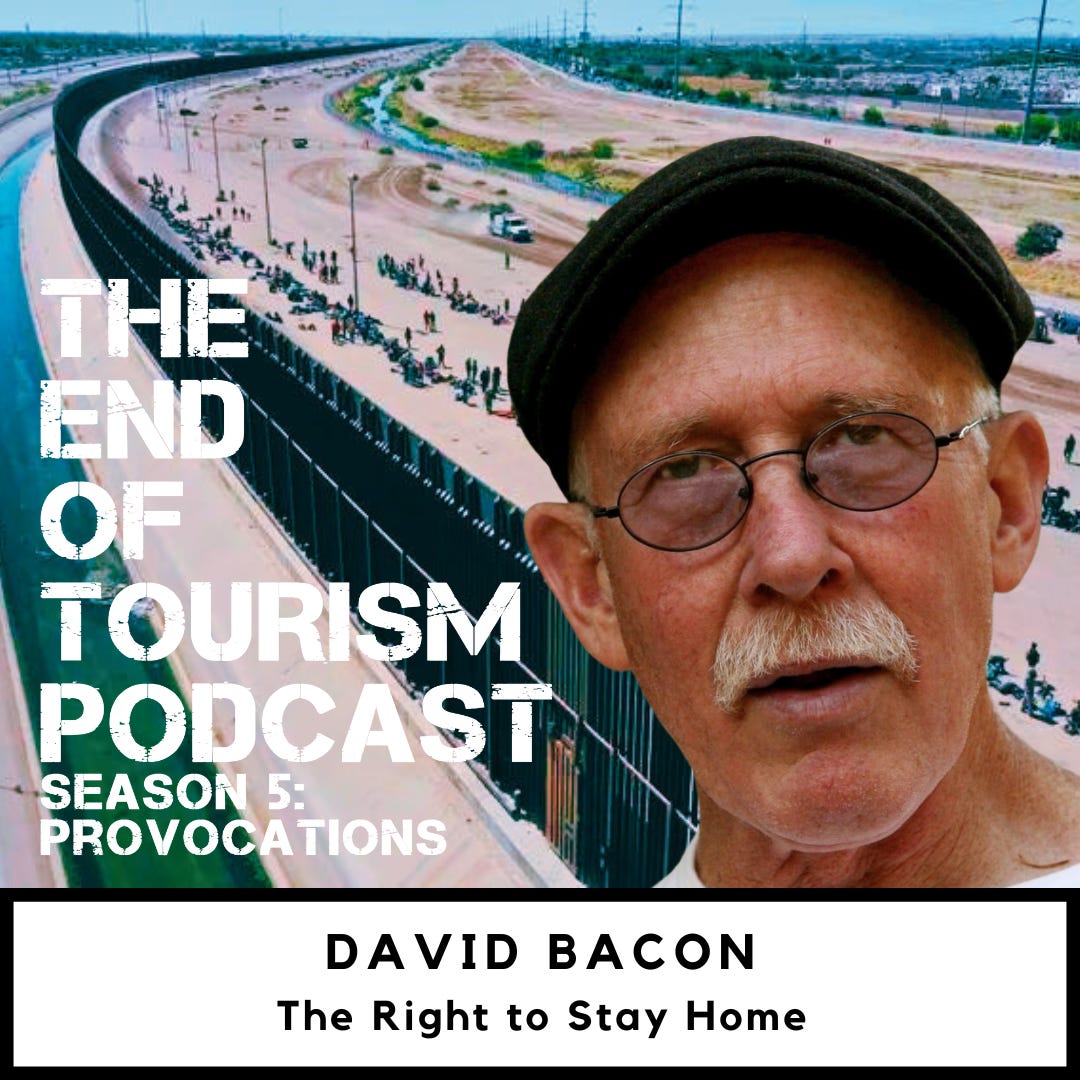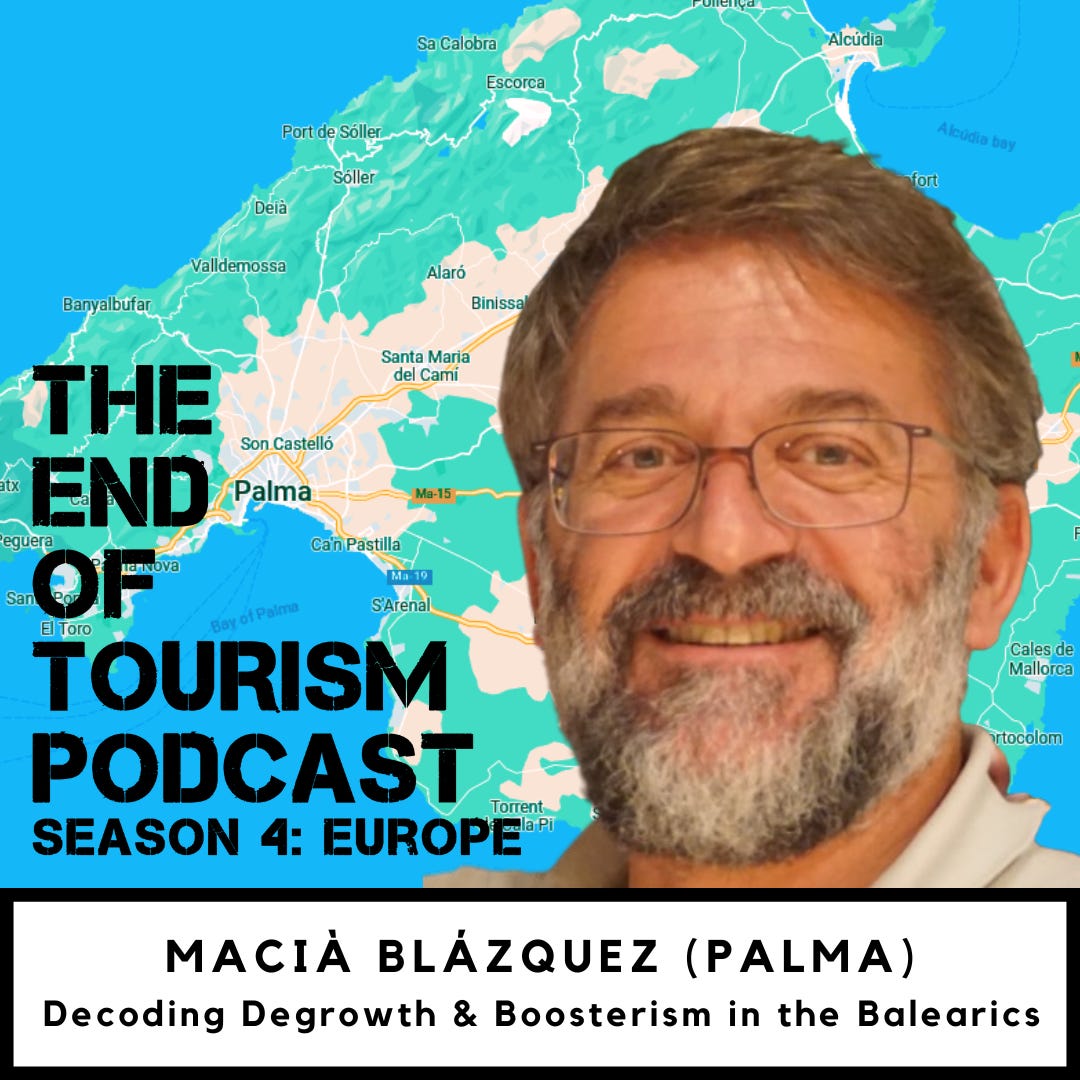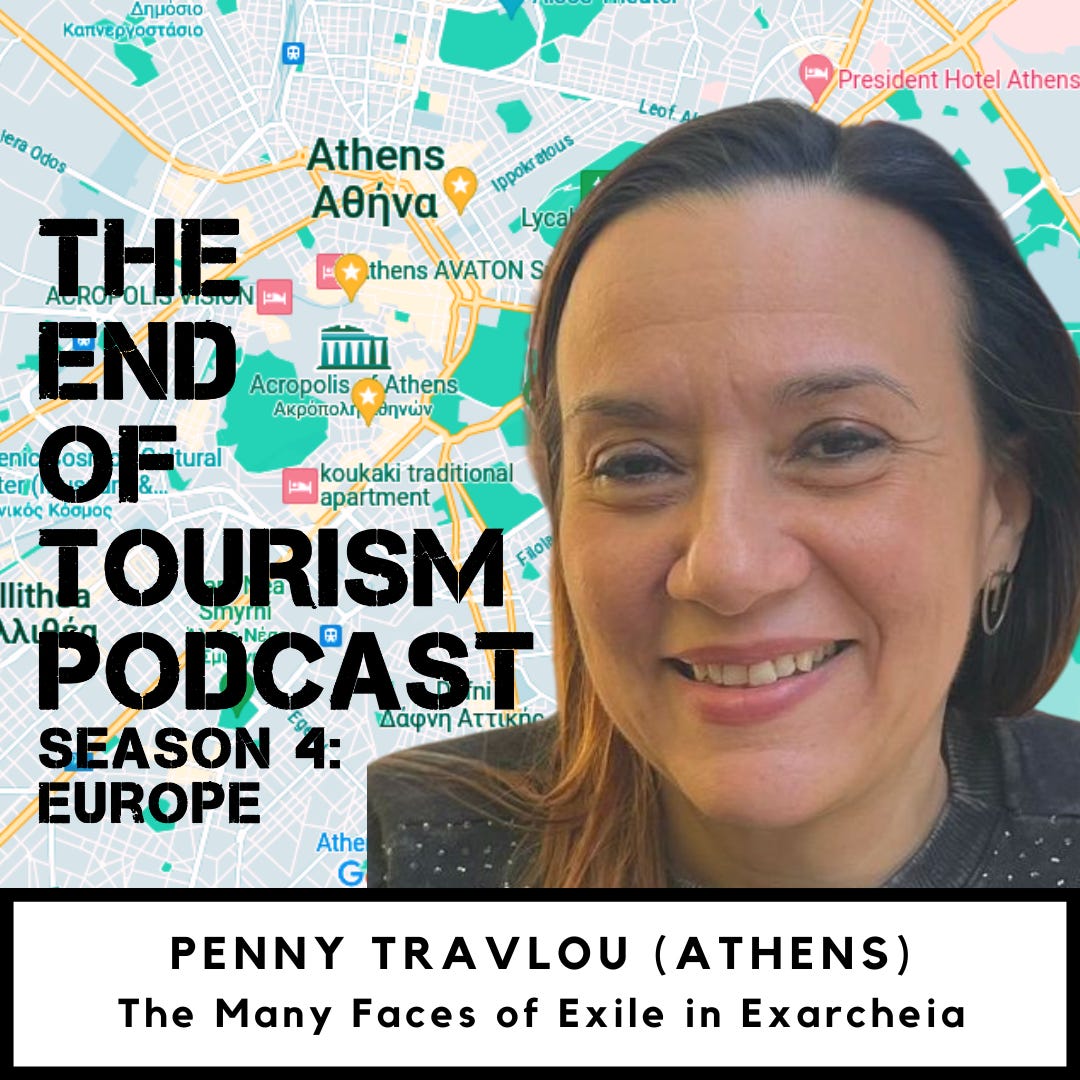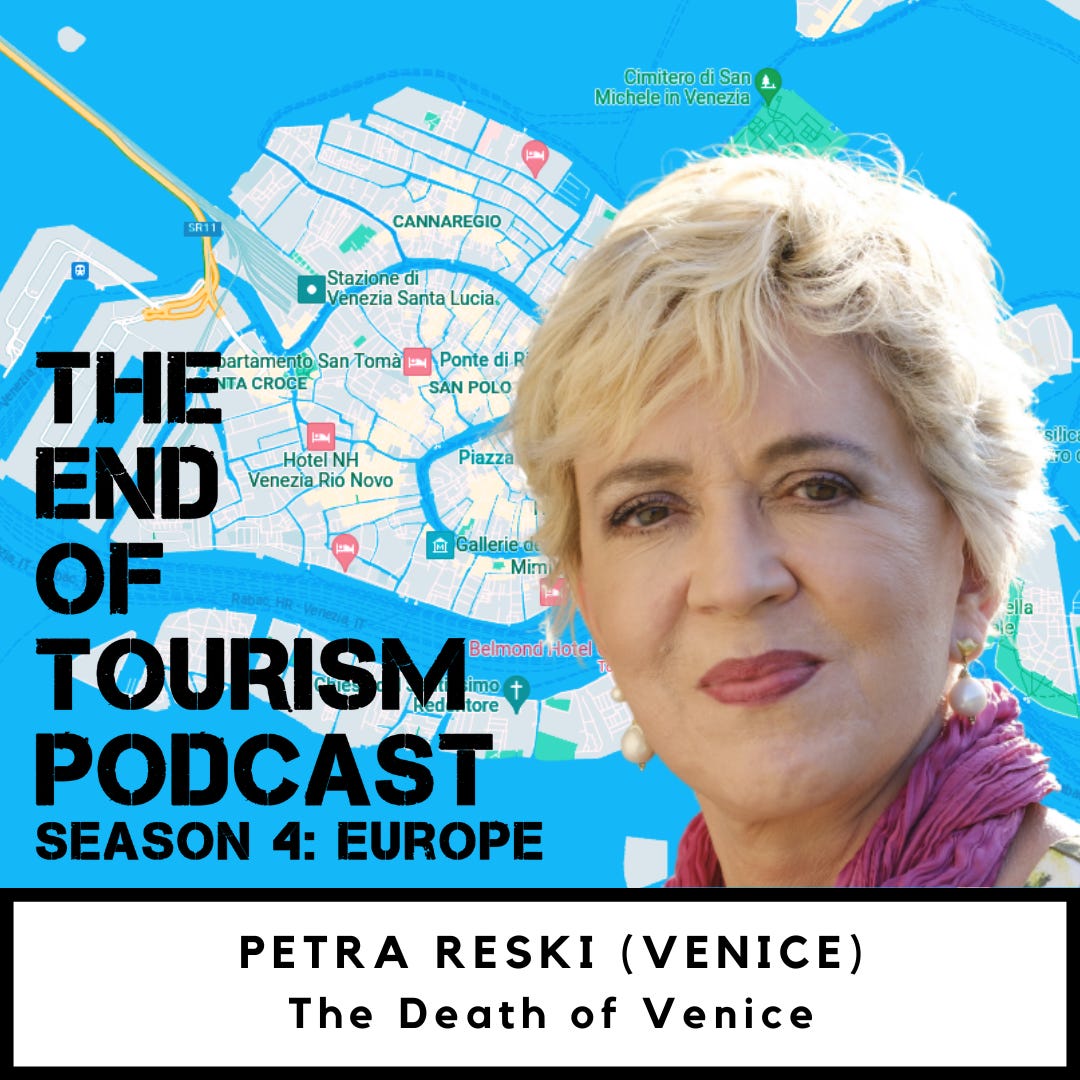S4 #3 | On the Lost Arts of Pilgrimage & Asking Permission w/ Nick Hunt
Description
On this episode, my guest is Nick Hunt, the author of three travel books about journeys by foot, including Outlandish: Walking Europe's Unlikely Landscapes. His articles have appeared in The Guardian, Emergence, The Irish Times, New Internationalist, Resurgence & Ecologist and other publications. He works as an editor and co-director for the Dark Mountain Project. His latest book is an alternate history novel, Red Smoking Mirror.
Show Notes
Awe and the Great Secret
On Focus, Sight and Subjectivity
The Almost Lost Art of Walking
Pilgrimage and the Half Way Point
What if Left of Old-School Hospitality in our Times?
When Borders Matter Less
Hospitality and Pain
The Costs of Interculturality
Asking Permission: On Not Being Welcome
Friendship, Hospitality, and Exchange
Homework
Transcript
[00:00:00 ] Chris Christou: Welcome Nick to the End of Tourism podcast. Thank you so very much for joining us today.
[00:00:05 ] Nick Hunt: Very nice to be here, Chris.
[00:00:07 ] Chris Christou: I have a feeling we're in for a very special conversation together. To begin, I'm wondering if you could offer us a glimpse into your world today, where you find yourself, and how the times seem to be rolling out in front of you, where you are.
[00:00:22 ] Nick Hunt: Wow, that's a good, that's a good question. Geographically, I'm in Bristol, in the southwest of England, which is the city I grew up in and then moved away from and have come back to in the last five or so years. The city that I sat out the pandemic, which was quite a tough one for various reasons here and sort of for me personally and my family.
But the last year really has just felt like everyone's opening out again and it feels... it's kind of good and bad. There was something about that time, I don't want to plunge straight into COVID because I'm sure everyone's sick of hearing about it, but the way it, it froze the world and froze people's personal lives and it froze all the good stuff, but it also froze a lot of the more difficult questions.
So, I think in terms of kind of my wider work, which is often, focused around climate change, extinction, the state of the planet in general, the pandemic was, was oddly, you didn't have to think about the other problems for a while, even though they were still there. It dominated the airspace so much that everything else just kind of stopped.
And now I find that in amongst all the joy of kind of friends emerging again and being able to travel, being able to meet people, being able to do stuff, there's also this looming feeling of like, the other problems are also waking up and we're looking at them again.
[00:01:56 ] Chris Christou: Yeah. We have come back time to time in the last year or two in certain interviews of the pod and, and reflected a little bit on those times and considered that there was, among other things, it was a time where there was the possibility of real change. And I speak more to the places that have become tourist destinations, especially over touristed and when those people could finally leave their homes and there was nobody there that there was this sense of Okay, things could really be different
[00:02:32 ] Nick Hunt: Yeah.
As well. Yeah. I know there, there was a kind of hope wasn't there that, "oh, we can change, we can, we can act in, in a huge, unprecedented way." Maybe that will transfer to the environmental problems that we face. But sadly that didn't happen. Or it didn't happen yet.
[00:02:53 ] Chris Christou: Well, time will tell. So Nick, I often ask my guests to begin with a bit of background on how their own travels have influenced their work, but since so much of your writing seems to revolve around your travels, I've decided to make that the major focus of our time together. And so I'd like to begin with your essay Bulls and Scars, which appears in issue number 14 of Dark Mountain entitled TERRA, and which was republished in The Best British Travel Writing of the 21st Century.
[00:03:24 ] Nick Hunt: A hyperbolic, a hyperbolic title, I have to say.
[00:03:29 ] Chris Christou: And in that exquisite essay on the theme of wanderlust, you write, and I quote,
"always this sense, when traveling, will I find it here? Will the great secret reveal itself? Is it around the next corner? There is never anything around the next corner except the next corner, but sometimes I catch fragments of it.
This fleeting thing I am looking for. That mountainside, that's a part of it there. The way the light falls on that wall. That old man sitting under a mulberry tree with his dog sleeping at his feet. That's a part of the secret too. If I could fit these pieces together, I would be completed. Waking on these sacks of rice, I nearly see the shape of it. The outlines of the secret loom, extraordinary and almost whole. I can almost touch it. I think. Yes, this is it. I am here. I have arrived, but I have not arrived. I am traveling too fast. The moment has already gone, the truck rolls onwards through the night, and the secret slides away.
This great secret, Nick, that spurs so much of our wanderlust. I'm curious, where do you imagine it comes from personally, historically, or otherwise?
[00:04:59 ] Nick Hunt: Wow. Wow. Thank you for reading that so beautifully. That was an attempt to express something that I think I've always, I've always felt, and I imagine everybody feels to some extent that sense of, I guess you could describe it as "awe," but this sense that I, I first experienced this when I was a kid.
I was about maybe six, five or six years old, maybe seven. I can't remember. Used to spend a lot of time in North Wales where my grandparents lived and my mum would take me up there and she loved walking. So we'd go for walks and we were coming back from a walk at the end of a day. So it was mountains. It was up in Snowdonia.
And I have a very vivid memory of a sunset and a sheep and a lamb and the sky being red and gold in sense that now I would describe it as awe, you know, the sublime or something like that. I had no, no words for it. I just knew it was very important that I, I stayed there for a bit and, and absorbed it.
So I refused to walk on. And my mom, I'll always be grateful for this. She didn't attempt to kind of pull my hand and drag me back to the car cuz she probably had things to do. But she walked on actually and out of sight and left me just to kind of be there because she knew that this was an important thing.
And for me, that's the start of, of the great secret. I think this sense of wanting to be inside the world. I've just been reading some Ursula LeGuin and there's a short story in her always coming home. I think it's called A Hole in the Air. And it's got this kind of conceit of a man stepping outside the world and he kind of goes to a parallel version of his world and it's the one in which some version of us lives.
And it's the kind of, you know, sort of fucked up war-like version where everything's kind of terrible and polluted, dangerous and violent and he can't understand it. But this idea of he's gone outside the world and he can't find his way back in. And I think this is a theme in a lot of indigenous people.
This idea of kind of being inside something and other cultures being outside. I think a lot, all of my writing and traveling really has been about wanting to get inside and kind of understand something. I don't know. I mean, I dunno what the secret is because it's a secret and what I was writing about in that essay was, I think in my twenties particularly, I kind of imagined that I could find this if I kept moving.
The quicker the better because you're covering more ground and more chance of finding something that you're looking for, of knowing what's around the next corner, what's over the next hill. You know, even today I find it very difficult to kind of turn back on a walk before I've got to the top of a hill or some point where I can see what's coming next.
It feels like something uncompleted and then I'm sure, as I imagine you did, you know, you were describing to me earlier about traveling throughout your twenties and always kind of looking for this thing and then realizing, what am I actually, you know, what am I doing? What am I actually looking for?
Mm-hmm. So I still love traveling, obviously, but I don't feel this kind youthful urge just to keep moving, keep moving, keep moving, see more things, you know, experience more. And then I think you learn when you get a bit older that maybe that's not the way to find whatever it is that you are kind of restless for.
Maybe that's when you turn inside a little bit more. And certainly my travels now are kind of shorter and slower than they were before, but I find that there's a better quality of focus in the landscapes or places that before I would've kind of dismissed and rushed through are now endlessly fascinating.
And allowing more time to kind of stay in a place has its own value.
[00:09:19 ] Chris Christou: Well, blessings to your mother. What's her name if I can ask? Her name's Caroline. It's the same name as my wife. So it's a source of endless entertainment for my friends.
Well, thank you, Caroline, for, for that moment, for allowing it to happen.
I think for better or worse, so many of us are robbed of those opportunities as children. And t

